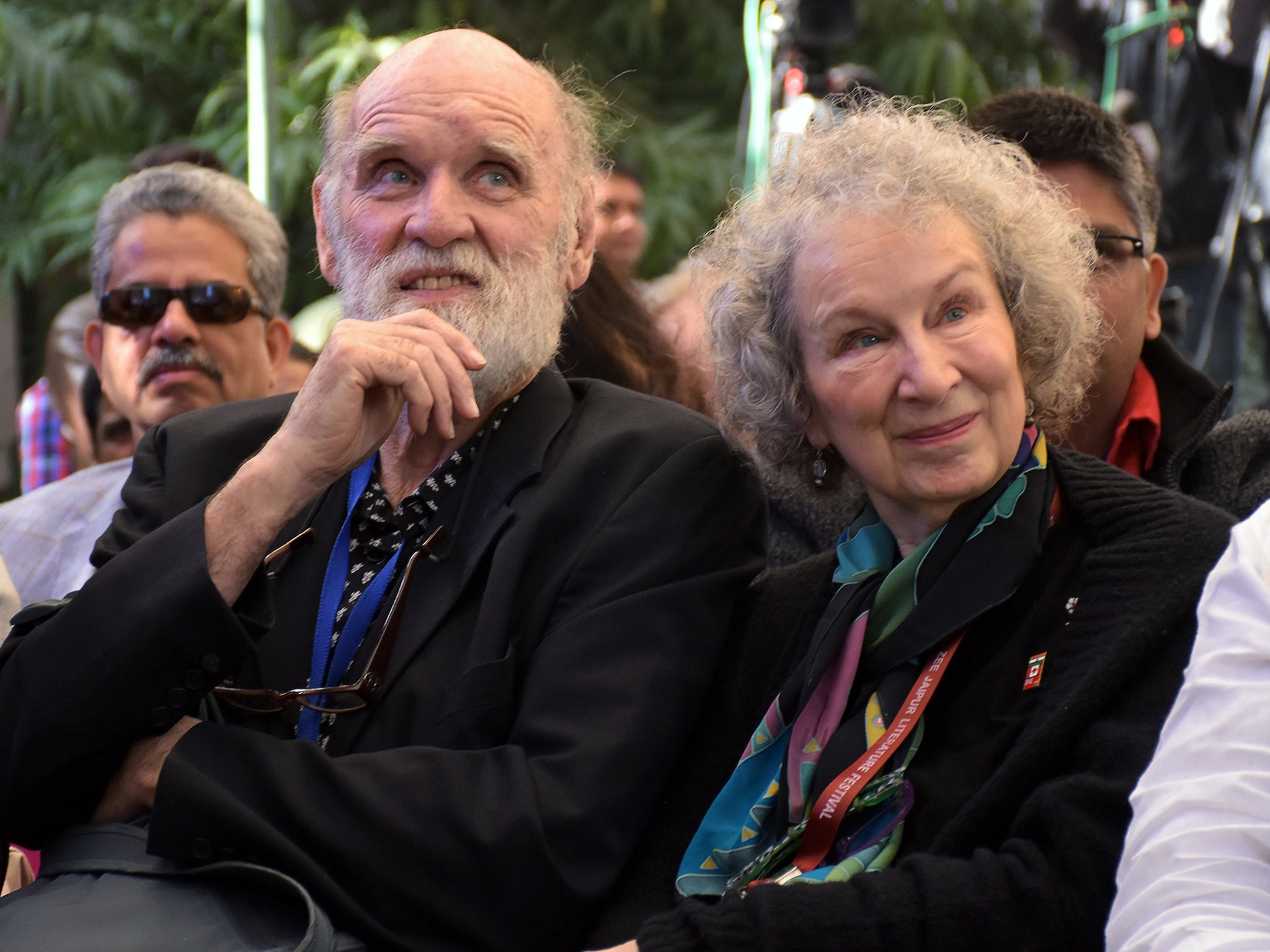Graeme Gibson: Canadian novelist and conservationist who spoke up for literary rights
Though his career was overshadowed by that of his partner Margaret Atwood, Gibson was an accomplished writer whose more experimental style found favour in the 1970s

Although the author Graeme Gibson was always in the shadow of his more famous partner Margaret Atwood, his legacy extends beyond his contributions to Canadian literature. Gibson, who has died aged 85, was also a conservationist, academic and relentless advocate for writers’ rights in his country.
He was born in 1934 in London, Ontario, the son of a commander in the Canadian military. He had academic ambitions and began his career studying in Western University, a research-intensive institution in his hometown.
Gibson, who was struggling with his postgraduate studies in Ontario, soon “rushed off to Europe” to study an MA at the University of Edinburgh. He then returned to Toronto to a teaching position at the Ryerson University where, seemingly out of character, he climbed on top of a statue and wrapped it in an American flag to protest against the sale of the Ryerson Press to an American company.
This in fact served as an announcement of his lifelong commitment to championing Canadian writers, and he would later be closely involved in a number of the country’s legacy literary institutions, including the Writers’ Union and the Writers’ Trust, of which he was a founder.
Gibson worked for nine years on his first novel Five Legs (1969), which was followed by Communion (1971), both written in a stream-of-consciousness style. By this point, he and other Canadian writers, such as the novelist and poet George Bowering and poet Frank Davey, were garnering international attention for their more experimental approach.
He met Atwood at a literary awards party before he interviewed her for his book compilation of interviews, Eleven Canadian Novelists (1970), the non-fiction work for which he is best known. It wasn’t until 1973 that both of their previous marriages dissolved, and they moved to an agricultural life in Alliston, Ontario. They would remain together until his death. His relentless support of her and her work once led a journalist interviewing Atwood to declare that “every woman writer should be married to Graeme Gibson”, a phrase which – despite the factual error about their status – Gibson had printed on a T-shirt.
During the 1990s Gibson received several recognitions for his work, including the Toronto Arts Award (1990) and the Harbourfront Festival Prize (1993). The Writers’ Union created the Graeme Gibson Award for people making significant contributions to improving the circumstances of writers in Canada. (Gibson was its first recipient in 1991.)
He published his last novel, Gentleman Death, in 1993 and three years later he abandoned novel writing to devote more time to cultural and environmental activism. He explained: “I discovered I had nothing more to say as a novelist and I didn’t want to start chewing my cabbage all over again.”
In 2005 he published The Bedside Book of Birds, a miscellany of avian representations in poetry, prose and art throughout human history. He served on the council of the World Wildlife Fund, was honorary president of the BirdLife International’s Rare Bird Club (which he founded with Atwood) and honorary fellow of the Royal Canadian Geographical Society.
He is survived by Atwood and three children.
Graeme Gibson, author and conservationist, born 9 August 1934, died 18 September 2019
Subscribe to Independent Premium to bookmark this article
Want to bookmark your favourite articles and stories to read or reference later? Start your Independent Premium subscription today.

Join our commenting forum
Join thought-provoking conversations, follow other Independent readers and see their replies